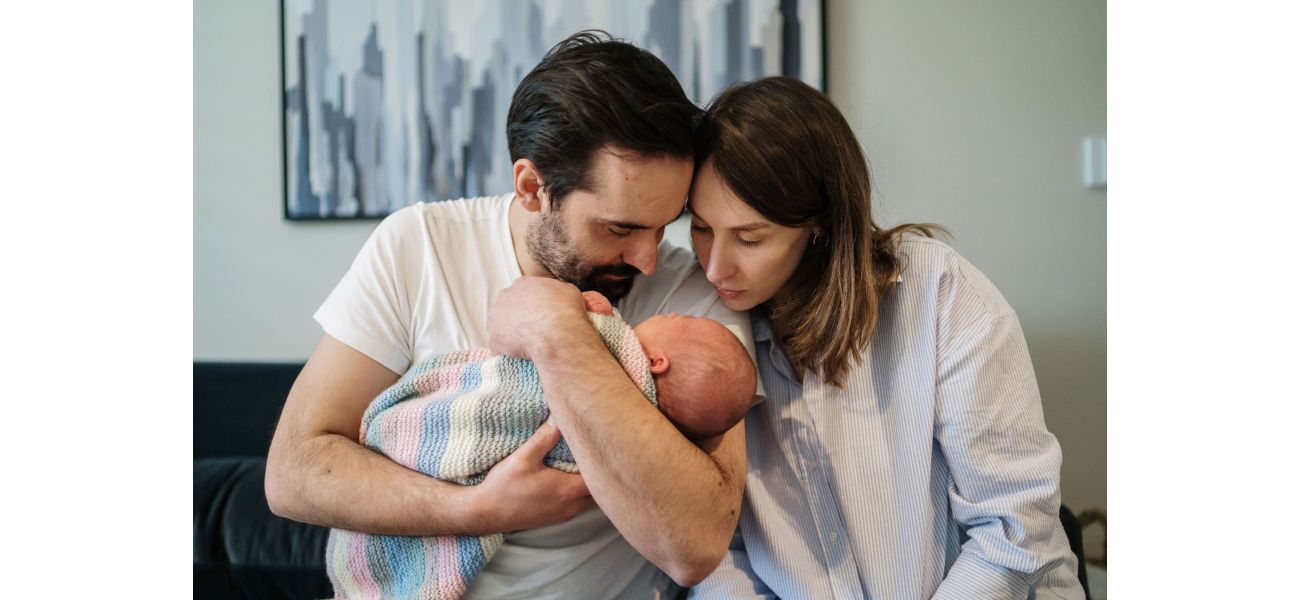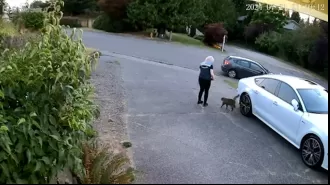"Breastfeeding pressure nearly caused my demise."
Breastfeeding almost killed me.
September 30th 2024.

I remember it like it was yesterday. I had just given birth to my beautiful baby boy, Rex, in January 2022. It had been a difficult labor, complete with an episiotomy, but it was all worth it when I saw his 9-pound bundle with a dusting of dark hair. Prior to his birth, I hadn't been set on breastfeeding, but now that he was here, I wanted to give it a try. Little did I know that this decision would lead to one of the scariest moments of my life.
At first, Rex latched on well, but the next day, the pain became unbearable. My nipples were chapped and bleeding, but I battled through it, determined to do everything "right." Back home in Somerset, feeding became the focus for my husband Louis and me, especially when a midwife expressed concern that Rex was losing too much weight. So, when I was advised to supplement with formula and pump breast milk every two hours, I did so diligently.
But the pain only worsened. I was told to discard my nipple shields, which were affecting the milk flow, and I pushed through the intense sensation of being stabbed with knitting needles. This was not what I had imagined for my life as a new mom. I had expected to cuddle Rex and watch box sets, not be holed up in bed, constantly pumping with tears streaming down my face.
A breastfeeding counselor suggested I may have mastitis, a common condition where the breast becomes inflamed due to a build-up of milk. I was prescribed antibiotics and instructed to massage my breasts and continue pumping to clear the blockage. However, two days later, the pain had spread across my chest and under my armpits, and I could no longer hold Rex. I was admitted to the hospital, where I was hooked up to IV antibiotics and sent for an ultrasound. It was during this time that I pumped the strange yellow milk.
Still, the doctors were unsure of what was wrong with me. It wasn't until my husband's sister, a healthcare professional, mentioned that the antibiotics I was taking were typically used for sepsis, that the pieces started to come together. Sepsis is a life-threatening condition where the body has an extreme inflammatory response to an infection. It can be caused by something as small as a cut on your finger or a virus like pneumonia. In my case, it was likely from the cuts on my nipples or from cellulitis, a skin infection I was later diagnosed with, all as a result of breastfeeding.
I was lucky that the antibiotics worked, and I was able to go home after a week, but the experience had traumatized me. I suffered from flashbacks, insomnia, and was eventually diagnosed with Post Traumatic Stress Disorder. I also took it upon myself to learn more about sepsis, which is how I found the UK Sepsis Trust. Through their website, I learned that nearly a quarter of a million people in the UK get sepsis, and more people die from it than from prostate, bowel, and breast cancer combined.
I was shocked to discover that only a third of the public would feel confident recognizing the symptoms of sepsis, including doctors and nurses. This needs to change. I want every person to be aware of the signs, and I want every new mom out there to know the risks of sepsis. We need better awareness and education, so people know when to seek help and receive treatment early.
Today, Rex is a happy and cheeky two-and-a-half-year-old, but I am aware that because of sepsis, he could have grown up without a mom. It is my mission to prevent others from going through what we did. So, I urge everyone to learn more about sepsis and support the UK Sepsis Trust. Together, we can make a difference and save lives.
At first, Rex latched on well, but the next day, the pain became unbearable. My nipples were chapped and bleeding, but I battled through it, determined to do everything "right." Back home in Somerset, feeding became the focus for my husband Louis and me, especially when a midwife expressed concern that Rex was losing too much weight. So, when I was advised to supplement with formula and pump breast milk every two hours, I did so diligently.
But the pain only worsened. I was told to discard my nipple shields, which were affecting the milk flow, and I pushed through the intense sensation of being stabbed with knitting needles. This was not what I had imagined for my life as a new mom. I had expected to cuddle Rex and watch box sets, not be holed up in bed, constantly pumping with tears streaming down my face.
A breastfeeding counselor suggested I may have mastitis, a common condition where the breast becomes inflamed due to a build-up of milk. I was prescribed antibiotics and instructed to massage my breasts and continue pumping to clear the blockage. However, two days later, the pain had spread across my chest and under my armpits, and I could no longer hold Rex. I was admitted to the hospital, where I was hooked up to IV antibiotics and sent for an ultrasound. It was during this time that I pumped the strange yellow milk.
Still, the doctors were unsure of what was wrong with me. It wasn't until my husband's sister, a healthcare professional, mentioned that the antibiotics I was taking were typically used for sepsis, that the pieces started to come together. Sepsis is a life-threatening condition where the body has an extreme inflammatory response to an infection. It can be caused by something as small as a cut on your finger or a virus like pneumonia. In my case, it was likely from the cuts on my nipples or from cellulitis, a skin infection I was later diagnosed with, all as a result of breastfeeding.
I was lucky that the antibiotics worked, and I was able to go home after a week, but the experience had traumatized me. I suffered from flashbacks, insomnia, and was eventually diagnosed with Post Traumatic Stress Disorder. I also took it upon myself to learn more about sepsis, which is how I found the UK Sepsis Trust. Through their website, I learned that nearly a quarter of a million people in the UK get sepsis, and more people die from it than from prostate, bowel, and breast cancer combined.
I was shocked to discover that only a third of the public would feel confident recognizing the symptoms of sepsis, including doctors and nurses. This needs to change. I want every person to be aware of the signs, and I want every new mom out there to know the risks of sepsis. We need better awareness and education, so people know when to seek help and receive treatment early.
Today, Rex is a happy and cheeky two-and-a-half-year-old, but I am aware that because of sepsis, he could have grown up without a mom. It is my mission to prevent others from going through what we did. So, I urge everyone to learn more about sepsis and support the UK Sepsis Trust. Together, we can make a difference and save lives.
[This article has been trending online recently and has been generated with AI. Your feed is customized.]
[Generative AI is experimental.]
0
0
Submit Comment





